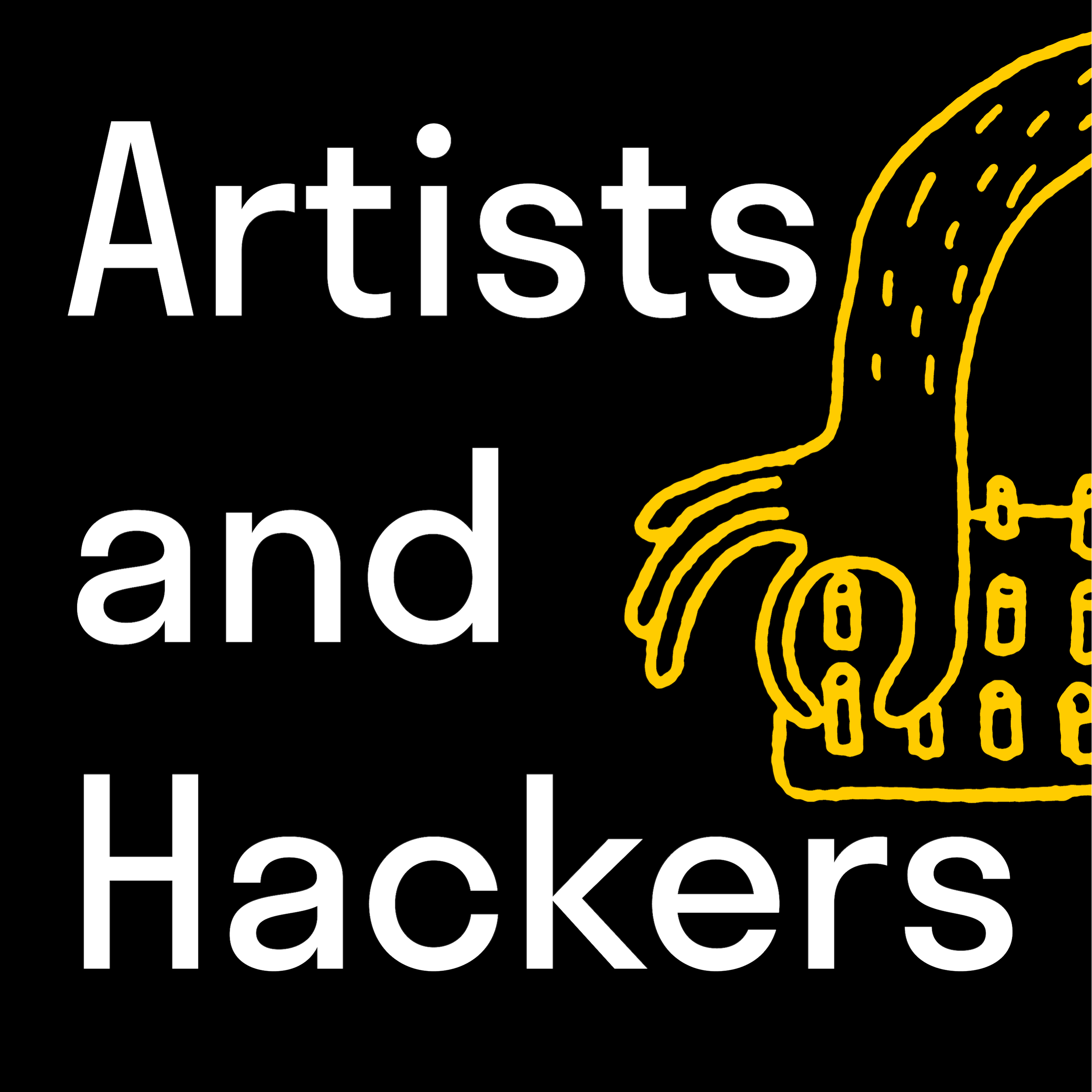
21.2K
Downloads
25
Episodes
A podcast dedicated to the community that is building and using new digital tools for creation. We’re looking at the current palette of artmaking tools online, and taking a critical eye to the history of technology and the internet. We’re interested in where we’ve been and speculative ideas on the future.
A podcast dedicated to the community that is building and using new digital tools for creation. We’re looking at the current palette of artmaking tools online, and taking a critical eye to the history of technology and the internet. We’re interested in where we’ve been and speculative ideas on the future.
Episodes
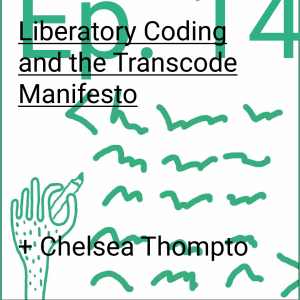
Thursday Aug 17, 2023
Liberatory Coding and the Transcode Manifesto
Thursday Aug 17, 2023
Thursday Aug 17, 2023
Chelsea Thompto is a transdisciplinary artist and educator working at the intersections of art, trans studies, and technology. We talk about the Transcode Manifesto, digital preservation, and how software is not like sculpture.
Episode notes, transcript and credits
This season of the podcast is produced with the New Media Caucus for New Rules: Conversations with New Media Artists. You can find out more by visiting newmediacaucus.org.
This project is supported in part by the National Endowment for the Arts. To find out more about how National Endowment for the Arts grants impact individuals and communities, visit arts.gov
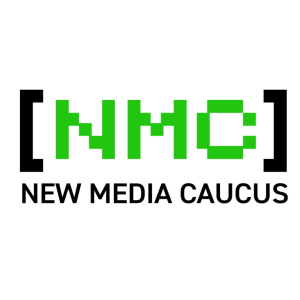
Thursday Feb 09, 2023
LIVE EVENT New Rules: Conversations with New Media Artists - February 17
Thursday Feb 09, 2023
Thursday Feb 09, 2023
We’ve teamed up with the New Media Caucus, an international non-profit association that supports the development and understanding of new media art. They work with artists, designers, practitioners, historians, theorists, educators, students, and scholars - so a perfect partnership with our show.
New Rules: Conversations with New Media Artists
Friday, February 17, 2023
7:30pm - 9pm
FREE
RSVP
The event we’re hosting is called New Rules: Conversations with New Media Artists, and it’s happening in New York City on Friday February 17th from 7:30pm - 9pm. I’ll be speaking live and recording a special episode with the New Media Artists KT Duffy, Rashin Fahandej, Sue Huang, and Chelsea Thompto about their work as new media artists.
The event is free and open to the public, and it will be followed by an informal dinner. You can RSVP to attend on our website, via a link from our Instagram artistsandhackers, through our newsletter if you’re one of our email newsletter subscribers, or from the New Media Caucus website. We’re asking you to please RSVP by Saturday the 11th (extended, please RSVP by the 14th) and we’ll send you the exact location just over the river into Queens, and it’s being held in an accessible art space. We hope to see you there.
New Rules is made possible with funding from the National Endowment for Arts.
Thanks
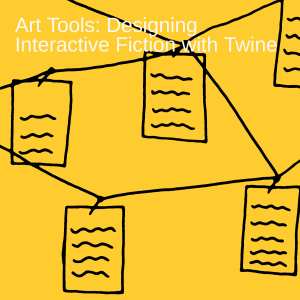
Thursday May 05, 2022
Art Tools: Designing Interactive Fiction with Twine
Thursday May 05, 2022
Thursday May 05, 2022
Chris Klimas is the original creator of Twine, a popular open source expanded toolset for creating branching narratives and interactive experimental stories and game. He talks about its creation, community and where it's going next.
Art Tools are our series of mini episodes with the creators of innovative and experimental software and hardware tools for creative expression.
Twine is a tool for creating branching narratives or what some people call "Choose Your Own Adventure"-style games. Originally created in 2009, Twine allows creators to make interactive stories, poems, text games or experimental prose. Twine is free and open source software that runs in a web browser or downloaded as an application, and while most Twine projects are text-only, some feature sound and images. At this point, there are tens of thousands of games, artworks and projects made with Twine, and these works are presented on websites, shared on the game distribution platform Itch.io or even shown in museums like the Whitney Museum of American Art.
Over its 13 years of existence Twine’s been extended in many different directions, with themes and example code. And it’s really easy to get started. Where other interactive fiction software is created solely with text and code, Twine features a visual design tool that feels as easy as creating an email. We talked to Twine’s creator Chris Klimas to find out more about its history and current development and community.
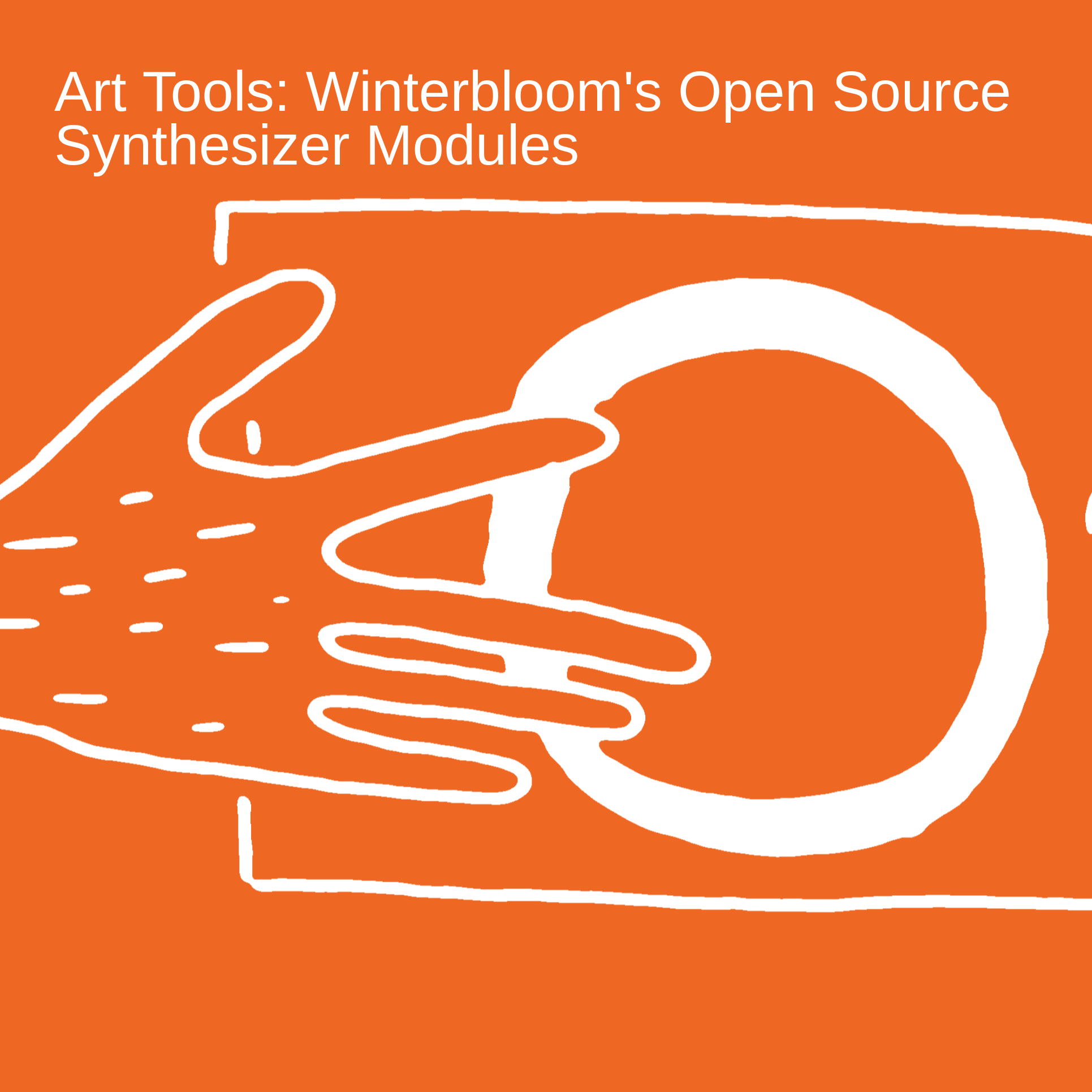
Tuesday Apr 05, 2022
Art Tools: Winterbloom’s Open Source Synthesizer Modules
Tuesday Apr 05, 2022
Tuesday Apr 05, 2022
In this Art Tools episode we interview Thea Flowers of Winterbloom, an open source music hardware company producing hackable music modules and kits for synthesizers. And we try out the Big Honking Button.
Art Tools are our series of mini episodes with the creators of innovative and experimental software and hardware tools for creative expression.
Our guest today is Thea Flowers of Winterbloom. Winterbloom produces new, open source modular synth hardware modules for making music. These are devices that can do things like make far-out space synth sounds, act as a mixer, or an audio sampler. The world of synthesizers has a huge number of companies. Thea’s Winterbloom stands out for its beautiful designs, but perhaps even more notably, its commitment to creating beginner-friendly tutorials and using a hackable CircuitPython codebase, a friendly language for easily writing software for hardware projects.
In research for this episode we purchased a Big Honking Button, one of the first modules produced by Winterbloom. It is available as a kit of parts or complete. You plug it into a Eurorack modular synthesizer to make sounds with it. Eurorack is the name for an ecosystem of cross-compatible music hardware produced by hundreds of manufacturers, from large companies like Moog and Behringer to much smaller companies. Winterbloom’s unique open source hackable stance means that it publishes code and instructions on how to modify their hardware in order to tweak the music hardware to your own particular needs.
By default the Big Honking Button features a large arcade button that emits a punishing goose honk each time you press the button. We started by changing this sound. Following Winterbloom’s instructions we plugged our Big Honking Button into a laptop, where it showed up as if it was an external drive. The first step we took was replacing the honk sound file with a bell sound we had. Immediately the module restarted, and when we pressed the Big Honking Button our new sound could be heard. Next we added in more sound samples. We opened the code.py file, and using example code from Winterbloom’s website we modified the code to play a different sound sample depending on receiving different input voltage such as using a slider or a dial. At first, our module didn’t seem to work the way we had expected. We asked some questions on the Winterbloom discord, where friendly folks chatted with us and Thea pointed us in the right direction. We needed to update our Big Honking Button’s libraries to the current release in order to use the latest code features. This was simple, basically copying files over and restarting, and in short order our modified code and sound samples on the Big Honking Button were producing both cacophonous and blissed-out drones to our delight.
This experience of in essence changing the very nature of how the hardware works felt really incredible and unique. Doubly so as we started to jam with our customized music hardware. The fact that it’s possible to do this in the simplified Python-based CircuitPython, using easy-to-follow example code made this a straightforward and gratifying experience, and would be accessible even to those with a minimum of programming experience, especially with the helpful online community.
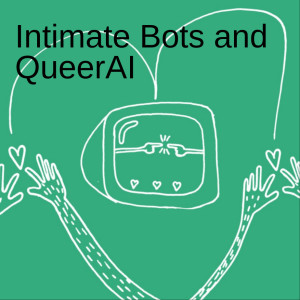
Tuesday Mar 15, 2022
Intimate Bots and QueerAI
Tuesday Mar 15, 2022
Tuesday Mar 15, 2022
The final in a trio of episodes we’re doing on artists working with bots and conversational agents. We speak to Emily Martinez of QueerAI on their work in bots and their collaborative AI chatbot experiment trained on erotic literature, feminist and queer theory, and an ethics of embodiment. We also talk with Jessica Garson, a Senior Developer Advocate at Twitter.
Note: This episode acknowledges the existence of sex and includes intimate text written via machine learning.
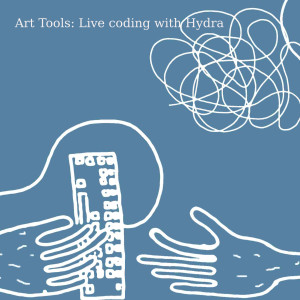
Thursday Feb 10, 2022
Art Tools: Live coding with Hydra
Thursday Feb 10, 2022
Thursday Feb 10, 2022
Art Tools is our new segment on experimental digital tools of creation. We speak with Olivia Jack on her browser-based visual live coding synthesizer called hydra.
Today we’re kicking off a new segment called Art Tools, a series of mini episodes with the creators of innovative and experimental software for making art, music and other creative expression.
In our very first episode Critical Code we spoke with the artist Sarah Groff Hennigh-Palermo, who created her own library and language La Habra for making live visual artwork with code. Today we’re speaking with the artist and programmer Olivia Jack on her browser-based visual livecoding software Hydra.
Hydra is a web-based video synthesizer. Olivia describes live coding as writing code in real time to make visuals and/or music as part of a performance. Originally begun as a series of explorations in the browser, Hydra is now used by a large community of live coding performers who perform in clubs and other venues, as well as in online streamed performances throughout the pandemic. There are many resources for getting started with Hydra, and a number of spin-off projects including PIXELJAM, also by Olivia, which allows multiple performers to do live coding together. There are also periodic online meetups where live coders worldwide meet up to talk and show off their works created with Hydra.
In this episode Olivia speaks on her background, the experiments that led to the creation of Hydra, and the choices she’s made in its design that has led to adoption by a large community of live coders creating visual works in the browser with Hydra.
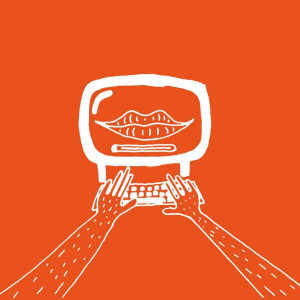
Thursday Jan 13, 2022
Triggering the Troll Bots
Thursday Jan 13, 2022
Thursday Jan 13, 2022
Ryan Kuo is an artist and writer creating projects that are diagrammatic and evoke a person or people arguing. In this episode I speak with Ryan and his collaborator Tommy Martinez about Faith, an 'easily triggered' AI voice assistant.
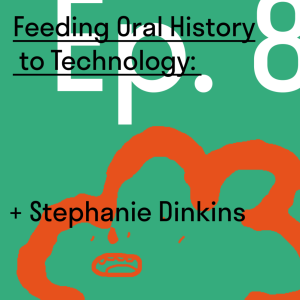
Thursday Oct 07, 2021
Feeding Oral History to Technology
Thursday Oct 07, 2021
Thursday Oct 07, 2021
Stephanie Dinkins is a transmedia artist creating platforms for dialog about race, gender, aging, and our future histories. In this episode we speak about her conversations with the advanced AI Bina48 and her work building conversational agents based on oral history.
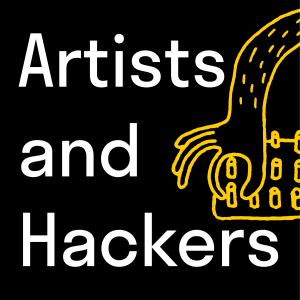
Tuesday Aug 24, 2021
Yes No Wave and Indonesia Net Audio
Tuesday Aug 24, 2021
Tuesday Aug 24, 2021
Since 2007 artist Wok The Rock has run Yes No Wave, a Javanese net audio record label that makes music available for free legal download. Yes No Wave albums are released under a creative commons license allowing free non-commercial use and the freedom to remix the music.

Thursday Jul 22, 2021
Reclamation and Worldbuilding in the Iyapo Repository
Thursday Jul 22, 2021
Thursday Jul 22, 2021
